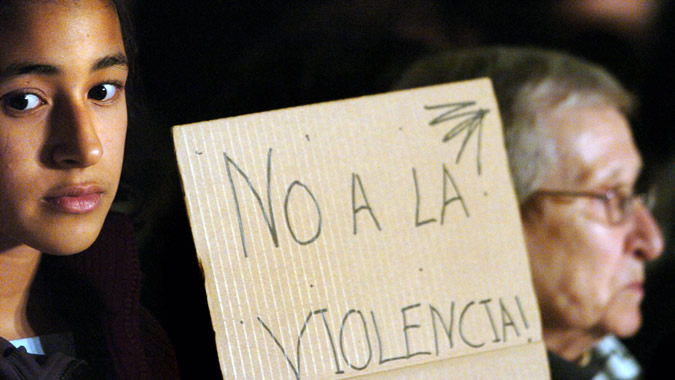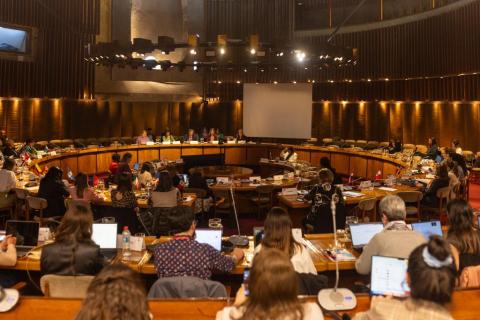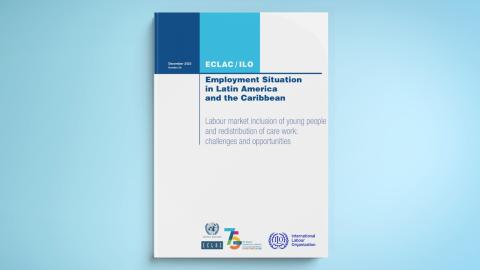Press Release
(7 November 2014) Violence against women cannot be analyzed or confronted in isolation; it must be linked to the factors of economic, social and cultural inequalities that occur in power relations between men and women, according to the latest annual report of the ECLAC Gender Equality Observatory for Latin America and the Caribbean (OIG), unveiled during the XV International Meeting on Gender Statistics of Aguascalientes, which ends today in Mexico.
Although the document warns about the absence, heterogeneity and dispersion of statistics on violence in the region, some national figures account for the scale of the problem. Last year, 88 women were murdered by their partners or former partners in Colombia, 83 in Peru, 71 in the Dominican Republic, 46 in El Salvador, 40 in Chile, 25 in Uruguay, 20 in Paraguay and 17 in Guatemala.
Other surveys show that 63 of every 100 women in Mexico and 60 of every 100 women in Ecuador have suffered some kind of violence, either by their partner or another person. This violence occurs more frequently among those who have or have had a partner (married, cohabiting, separated, divorced or widows): 48.7% in Ecuador, 47% in Mexico and 45.4% in Uruguay.
The difficulties to obtain reliable and timely information are worse in the case of indigenous and women of African descent. Available figures show that in Ecuador and Peru around 38% of indigenous women have at some time suffered physical or sexual violence at the hands of their partners. This situation applies to 24% of indigenous women in Guatemala and 20% in Paraguay.
At present 11 of the region's countries have classified femicide/feminicide in their laws: Bolivia, Chile, Costa Rica, Ecuador, El Salvador, Guatemala, Honduras, Mexico, Nicaragua, Panama and Peru, and three have introduced aggravated penalties for homicide: Argentina, Colombia and Venezuela.
Despite the regulatory progress, the Economic Commission for Latin America and the Caribbean (ECLAC) warns against the lack of public policies and institutions capable of guaranteeing the effective application of regulations in the region's countries. Furthermore, the report says that the regulations are focused on punishing the assailants, neglecting the factors that contribute to violence against women, including unequal job distribution, especially of non-remunerated domestic jobs.
The autonomy of the female population is threatened by the high proportion of women without incomes, which in 2010 reached 32.2% compared with 12.1% of men. That is why ECLAC poses "the challenge of evaluating whether the economic empowerment programs set up in various countries contribute or not to eliminating violence and its causes in the short and long-term."
ECLAC recommends improving information on gender violence; bringing about, whenever necessary, processes of legislative reform with participative debates; strong institutional coordination from senior hierarchy and great technical capability; and establishing a truly integrated system of response, capable of articulating social policies with judicial responses.
The organization also proposes strengthening health care mechanisms; guaranteeing the adequate financing of public policies, institutions and sectors involved in the initiatives for eradicating violence against women; generating transparent, regular and professional mechanisms of evaluation and establishing spaces for the participation of civil society, among others.
More information:



